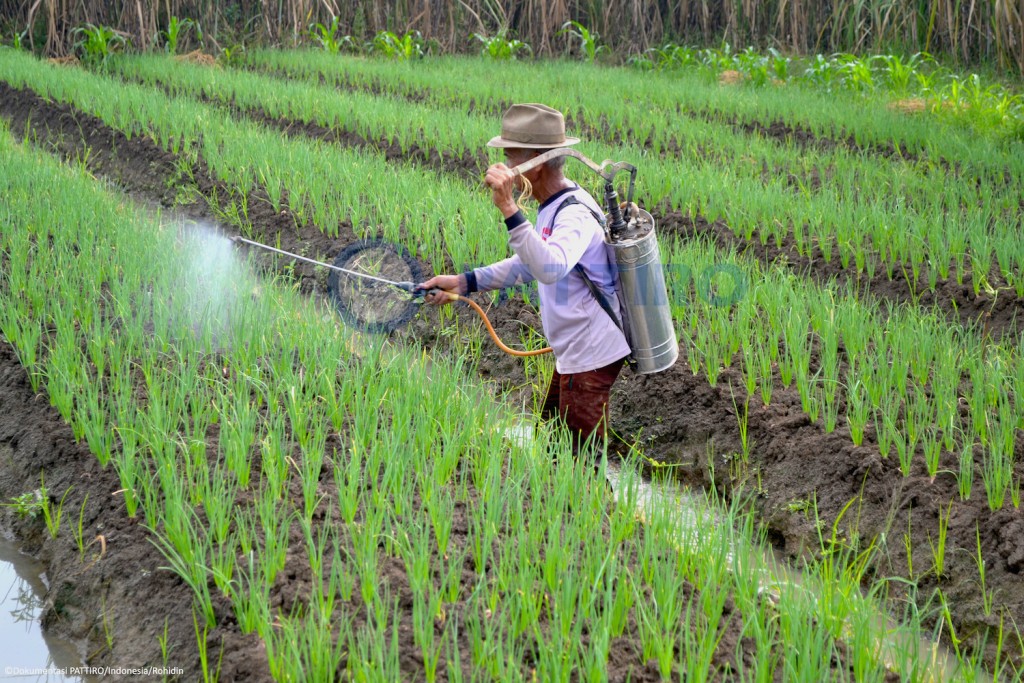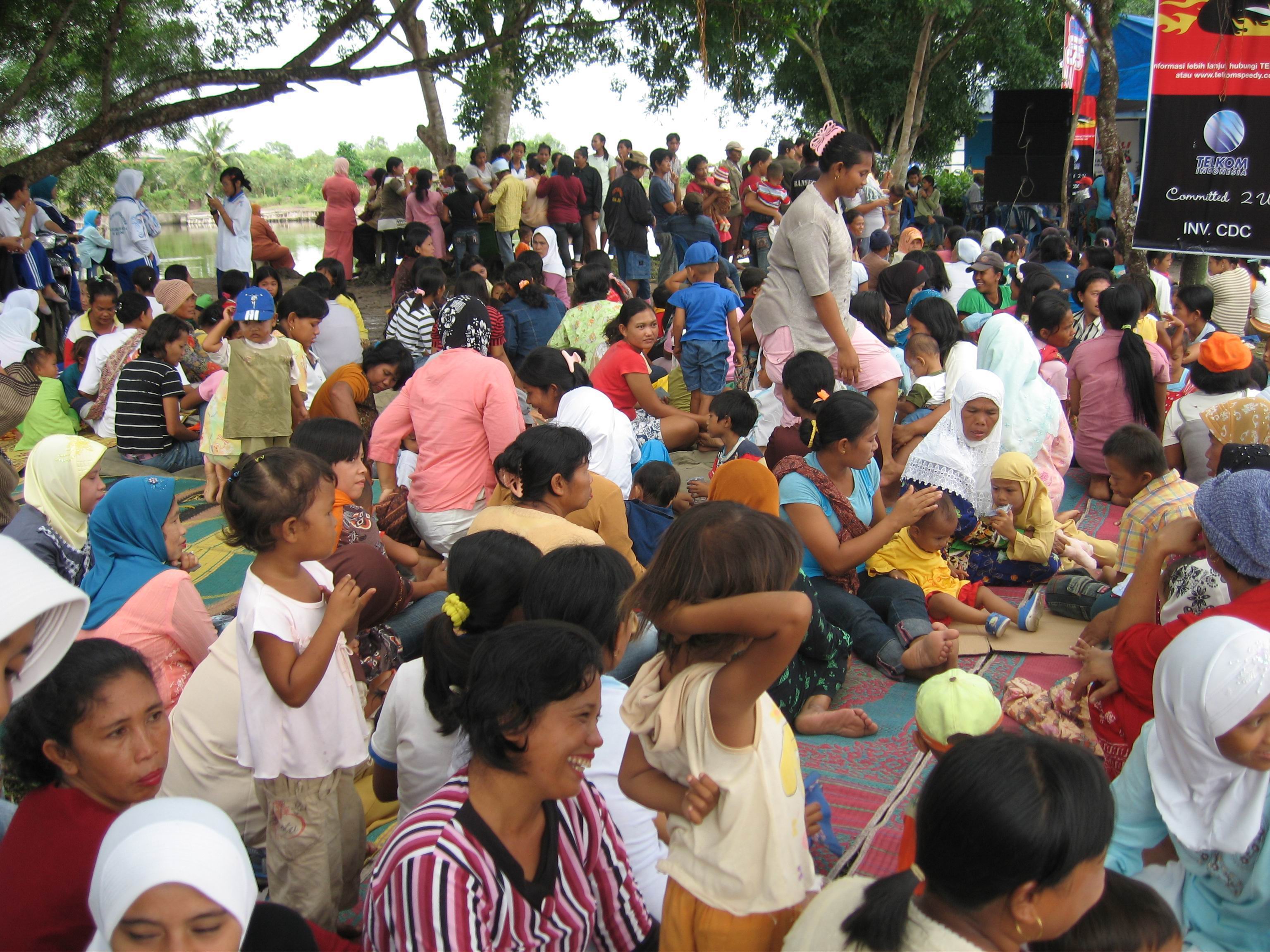 The government through the Ministry of Villages, Development of Disadvantaged Regions and Transmigration (Kemendes PDTT) revealed that there is potential for inequality in implementing the Village Law due to low community participation starting from the planning stage to monitoring village development. To prevent the emergence of this inequality and at the same time encourage the active involvement of village residents, the Minister of Villages, Development of Disadvantaged Regions and Transmigration Marwan Jafar plans to immediately form a Village Working Group (Pokja) consisting of civil society.
The government through the Ministry of Villages, Development of Disadvantaged Regions and Transmigration (Kemendes PDTT) revealed that there is potential for inequality in implementing the Village Law due to low community participation starting from the planning stage to monitoring village development. To prevent the emergence of this inequality and at the same time encourage the active involvement of village residents, the Minister of Villages, Development of Disadvantaged Regions and Transmigration Marwan Jafar plans to immediately form a Village Working Group (Pokja) consisting of civil society.
PATTIRO Executive Director Sad Dian Utomo appreciated Minister Marwan’s intentions. However, Sad Dian said, there are several things that must be considered so that the working group’s duties do not overlap with those of the Village Task Force.
Sad Dian suggested that the Village Working Group no longer needs to ensure the implementation of administrative accountability for the disbursement and use of village funds as well as the mechanisms for various village regulations. The Village Working Group should focus more on ensuring the implementation of social accountability for village development. “Administrative issues have become the domain of the Village Task Force. If the Working Group takes care of it again, it is feared that it will overlap. “The Village Working Group should focus on ensuring whether the benefits of development in villages are truly felt by the poor and marginalized communities such as the disabled, women and other groups,” he added.
Sad Dian admits that ensuring the implementation of social accountability is not an easy job, especially since the Village Working Group will only be staffed by civil society in the Jakarta area and its surroundings. Therefore, the Village Working Group needs to strengthen the capacity of civil society in the regions, especially at the district level, so that they have a stronger bargaining position when advocating with the district government. “Many village-related issues that have arisen so far are often stopped when faced with the role of the district. “Increasing the capacity of civil society in the district is necessary so that they are also able to monitor and advocate for the district government so that policies or decisions are made in accordance with the needs of village communities,” explained Sad Dian.
Apart from that, the Village Working Group must also be able to act as a liaison between civil society in the regions, including villages, and the central government. Sad Dian explained that this group could be a forum for and convey the aspirations of regional and village communities. “It is hoped that Poka Village can also be used by the community to convey complaints or findings in the field,” he said.
It doesn’t stop there, in fact, according to Sad Dian, the Village Working Group also needs to be involved in efforts to resolve problems in the village. “As the party tasked with ensuring the implementation of social accountability, the working group must also be involved in solving problems. “Or at least help ensure that the central government, in this case the relevant ministry, follows up on reports and complaints received,” concluded Sad Dian.
So that their performance is optimal and can produce significant changes, Sad Dian added, the Village Working Group must have a special work strategy. The Village Working Group should not only focus on the scope of work of the Ministry of Villages PDTT because the problems faced by villages are very complex and extensive, such as conflicts over authority with the district government, development problems, agrarian conflicts, and others. Therefore, Sad Dian explained, it is very important for the Village Working Group to be able to think and work cross-sectorally, such as with the Ministry of Home Affairs. In this case, the working group can ask for assistance or direction from the Ministry of Home Affairs to resolve conflicts between villages and district governments or encourage districts to issue regulations relating to villages.
Apart from the Ministry of Home Affairs, the Village Working Group must also be able to collaborate with the Ministry of National Development Planning/BAPPENAS and the Ministry of Finance. The aim is to encourage and ensure village development planning and the budget provided are in line with community needs.
The Village Working Group must also open a space for dialogue with the Ministry of Agrarian Affairs and Spatial Planning to resolve agrarian conflicts in villages. “The large number of cases of agrarian conflict in villages is one of the causes of poverty that continues to hit villages because village people no longer have land as capital for production. “This is the reason why the working group needs to have a dialogue with the Ministry of Agrarian Affairs and Spatial Planning,” said Sad Dian.
Sad Dian appealed, even though it has not yet been officially formed, the Village Working Group must be ready to carry out all the tasks it will receive. “Don’t let your work only be enthusiastic at the beginning. “Don’t let it happen that when village issues start to lose their popularity, they will become reluctant in their work,” stressed Sad Dian.
This article was published in Rakyat Merdeka Online with the title Pokja Desa Sebaiknya Fokus Pada Manfaat Pembangunan





